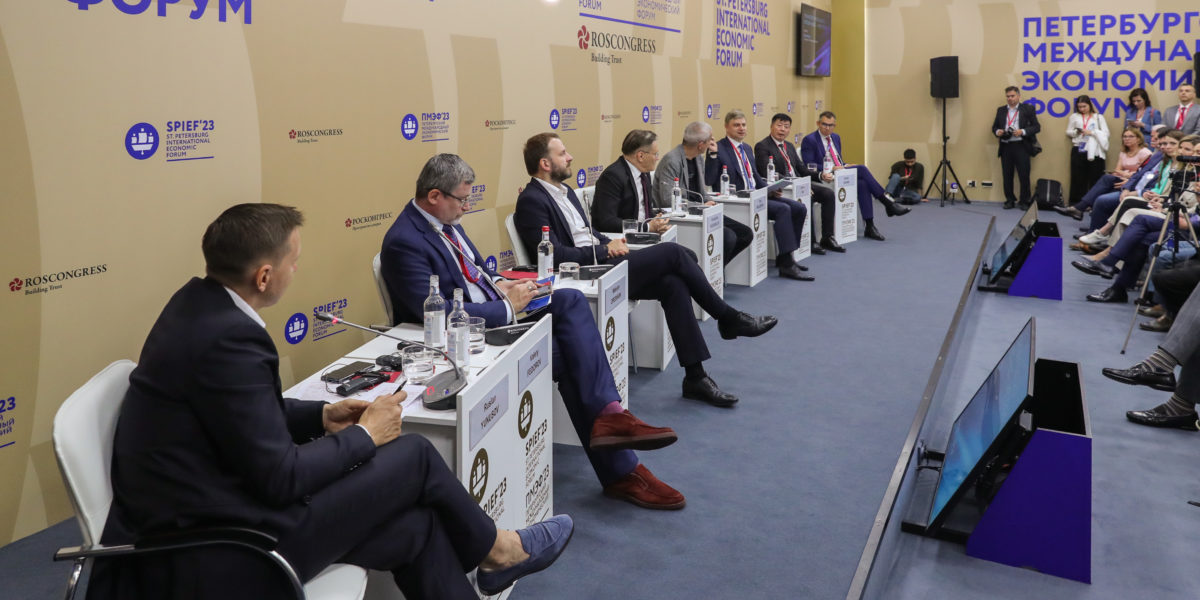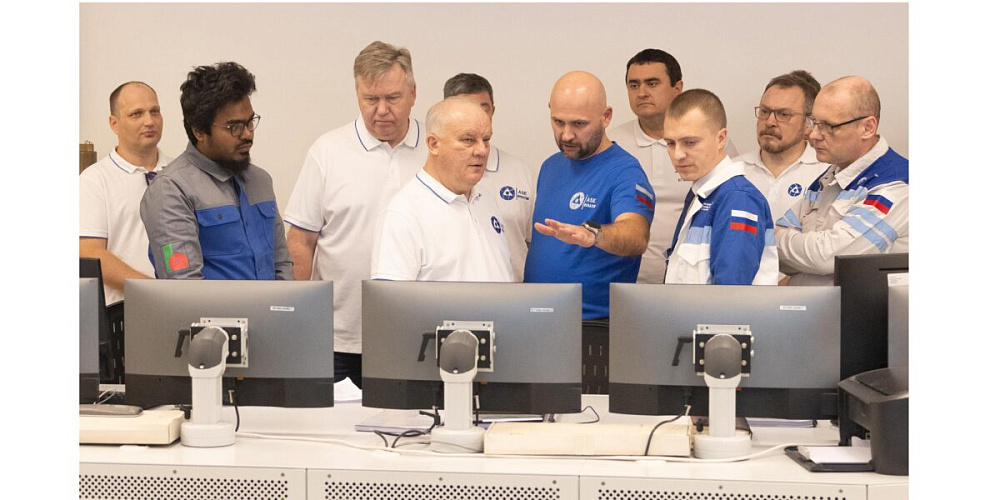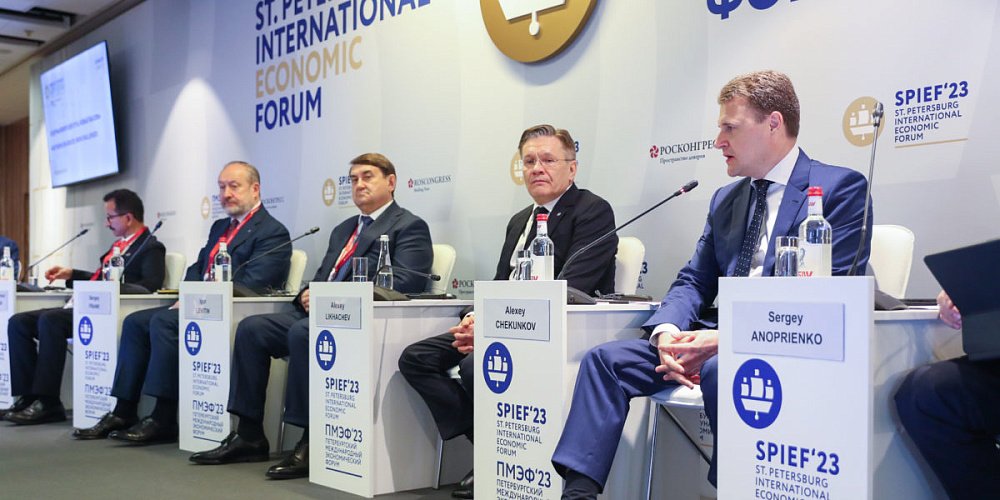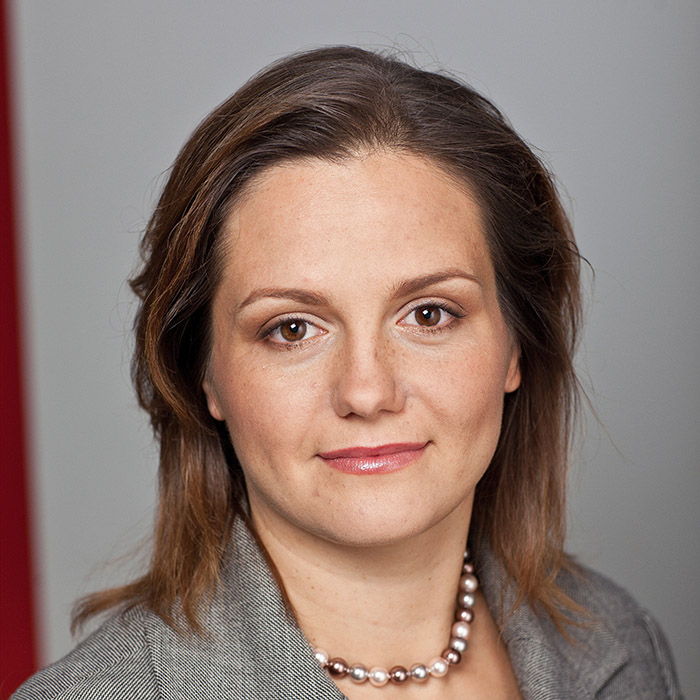State Atomic Energy Corporation Rosatom co-hosted the Technologies of the Future: When They’re Needed, It’s Already Too Late session at the Saint Petersburg International Economic Forum (SPIEF).
Alexey Likhachev, ROSATOM General Director, represented the state corporation at the event. Ruslan Yunusov, co-founder of Russian Quantum Center, moderated the session.
The participants talked about the prospects of investing in future innovations, including quantum technologies that have already become an inalienable part of the progress and now serve an important purpose in the development of Russia. The experts determined the path of scientific and technological growth for companies that seek to improve the quality of their products and services, streamline business processes, and increase overall business efficiency. Another question under discussion was how to motivate Russian businesses to invest in future technologies and which organizations could take responsibility for a wide implementation of such technologies.
Maxim Oreshkin, Aide to the President of the Russian Federation, emphasized that “to be competitive tomorrow, one has to work today—that is why Vladimir Putin suggested making the Future Technologies Forum an annual event.” The first such Forum will be held one month after SPIEF and focus on quantum computing and data transfer. Maxim Oreshkin believes that the exchange of knowledge and the dialogue between the scientific community and the business are just as important as scientific research because they give a synergistic effect.
Aleksey Likhachev highlighted the long-standing role that ROSATOM has performed as a technology leader experienced in running large-scale and complex development projects: “ROSATOM is, perhaps, somewhat better prepared to run the quantum project. Historically, we know how to handle risk with minimum losses on the way from an idea or scientific blueprint to commercial implementation. We have once travelled this path very quickly to ensure the security of our country. This experience is in our NDA, and it is sacred to us.”
Aleksey Likhachev pointed to the prominent part that state-owned companies have in the development of promising technologies in Russia. He stressed the significance of their investments in that sphere and the efforts they make to establish scientific and technological partnerships: “Not too many years ago it was believed that private businesses should give money for innovation, but it did not work. Then “road maps” came to be. The Russian government determined the main directions of strategic development and appointed the state corporations responsible for them. That is how ROSATOM became responsible for developing a quantum computer, and Russian Railways, for creating quantum communications. State corporations invest in the innovation sector, despite the risks.”
Aleksey Likhachev also said that it is necessary to educate a new generation of scientists and engineers who can take over the development of future technologies. It can be achieved by promoting the promising scientific disciplines both at the middle school and graduate levels: “We are reaching out to university students to pitch a number of scientific areas. However, I think that it is necessary to start even earlier and to reach out to middle schools. Working with the young generation is
Valery Fedorov, Director General of the Russian Public Opinion Research Center (VCIOM), shared relevant statistics: “Russia remains a country of techno-optimists. Although the future in general is seen as full of threats, dangers, problems, the technology, and above all the technologies of the future, is viewed as a tool for solving these problems. As a way to make our life safer, richer, more comfortable and respectable. About 77% of respondents say they are likely to trust future technologies.”
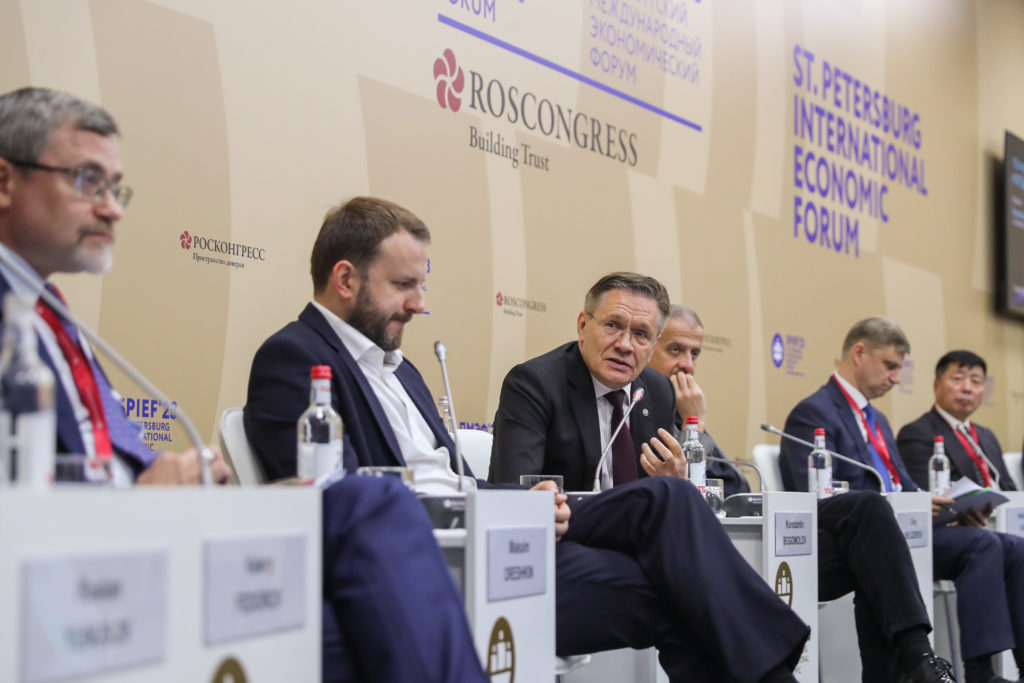
The Future Technologies Forum will be the largest new technology event in Russia. The forum will discuss quantum computing and data transfer. The event is held by the Roscongress Foundation with the support of the Russian Ministry of Digital Development, Communications and Mass Media, the Russian Academy of Sciences, and Russian Quantum Center. The co-organizers are State Corporation State Atomic Energy Corporation Rosatom and Russian Railways.
Reference
ROSATOM is a global technological multi-business group of companies with assets in energy, mechanical engineering, and construction industries. It has more than 350 subsidiaries – both enterprise and organizations – employing 290 thousand people. It has been implementing ROSATOM's Nuclear Industry Standard Digital Strategy (NISDS) since 2018; work in various areas of focus within different fields is being done as part of NISDS. In the Participation in Digitalization of Russia area of focus, ROSATOM is the competence center for the Digital Technologies federal project of the Russian Digital Economy national program, and a leading company in the implementation of "road maps" aimed at developing the New Industrial Software and Quantum Computing high-tech areas. Since 2021, ROSATOM has been implementing the first Russian import-substitution project for an entire class of industrial software, namely, the engineering analysis and mathematical modelling systems (CAE class). In 2022, the corporation became the project coordinator for the creation of Russian heavy class PLM systems. In the Digital Products area of focus, ROSATOM is developing and commercializing digital products for industrial enterprises — there are more than 60 digital products in the ROSATOM portfolio. In the Internal Digitalization area of focus, it is responsible for digitalization of NPP construction processes, digital import-substitution, and creating ROSATOM's Nuclear Industry Standard Digital Platform. ROSATOM's NISDS also includes development of end-to-end digital technologies (data handling technologies, internet of things, industrial technologies, virtual and augmented reality, neurotechnologies and artificial intelligence, wireless technologies, robotics and sensorics, etc.). In the Digital Competencies and Culture area of focus, ROSATOM implements educational programs to improve the digital literacy of employees, develops industrial production and technological platforms, and runs of digital skill competitions.

